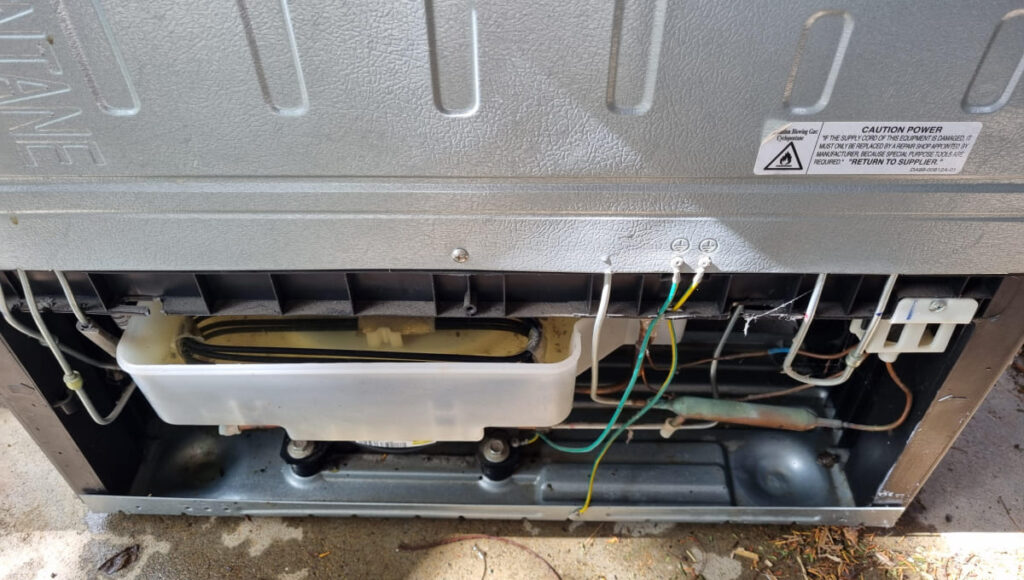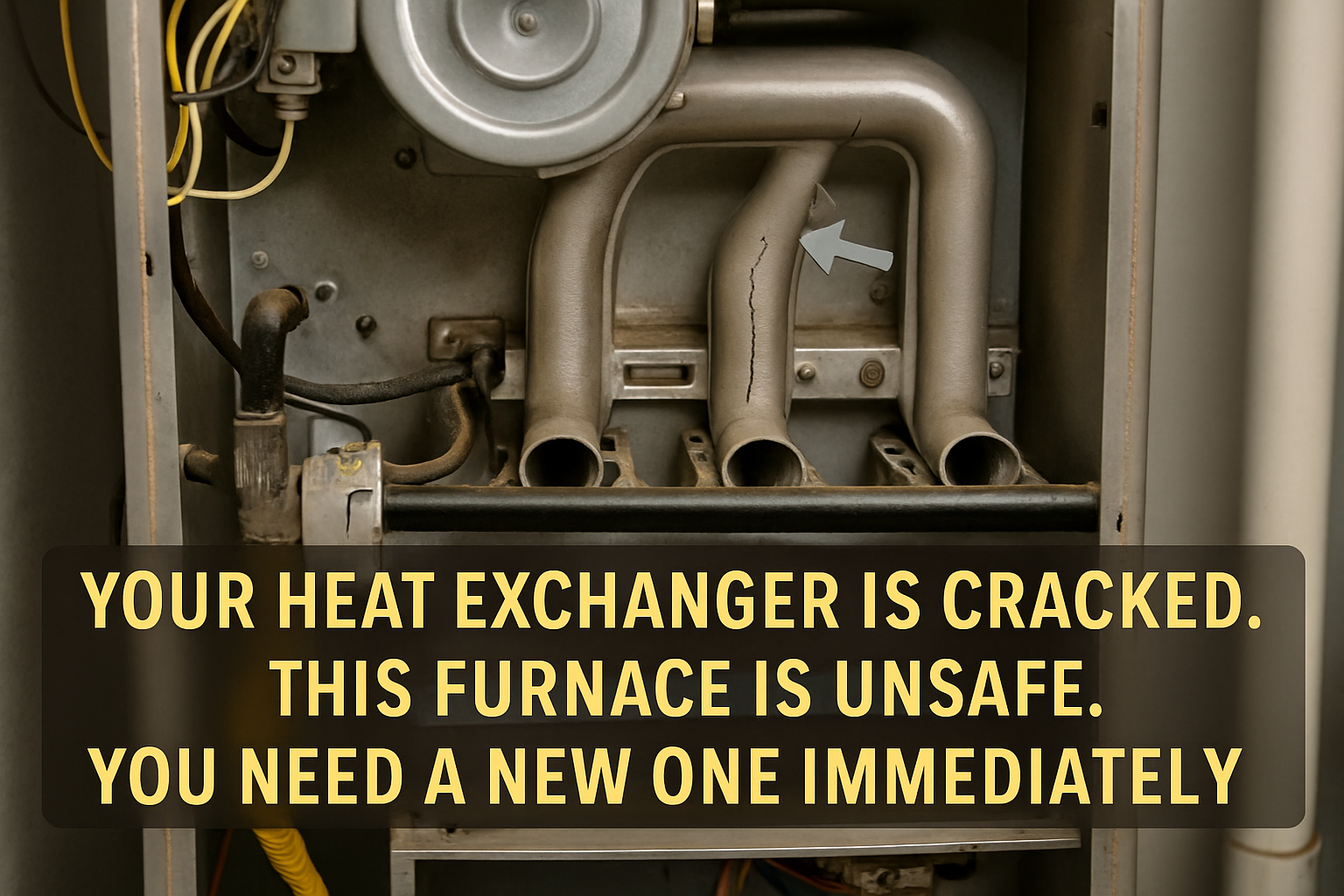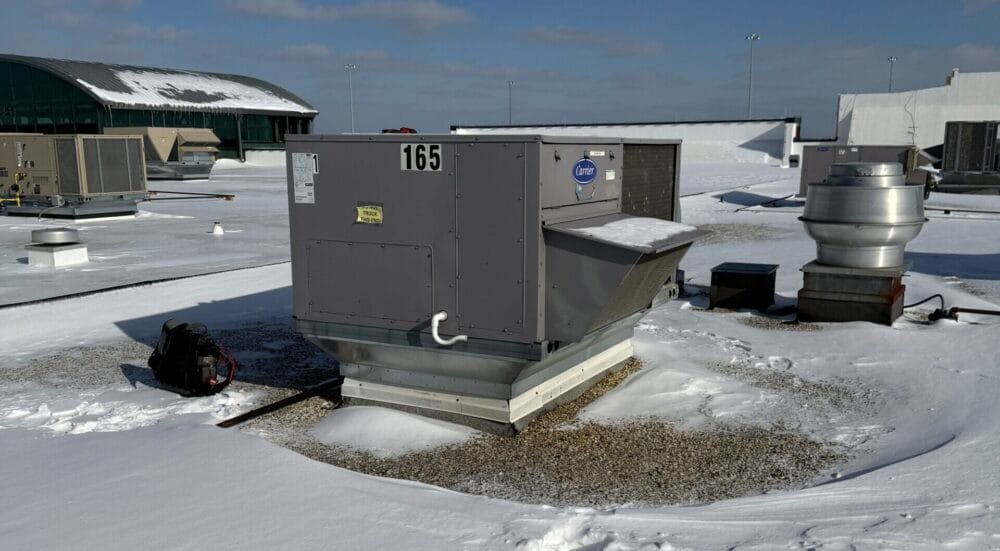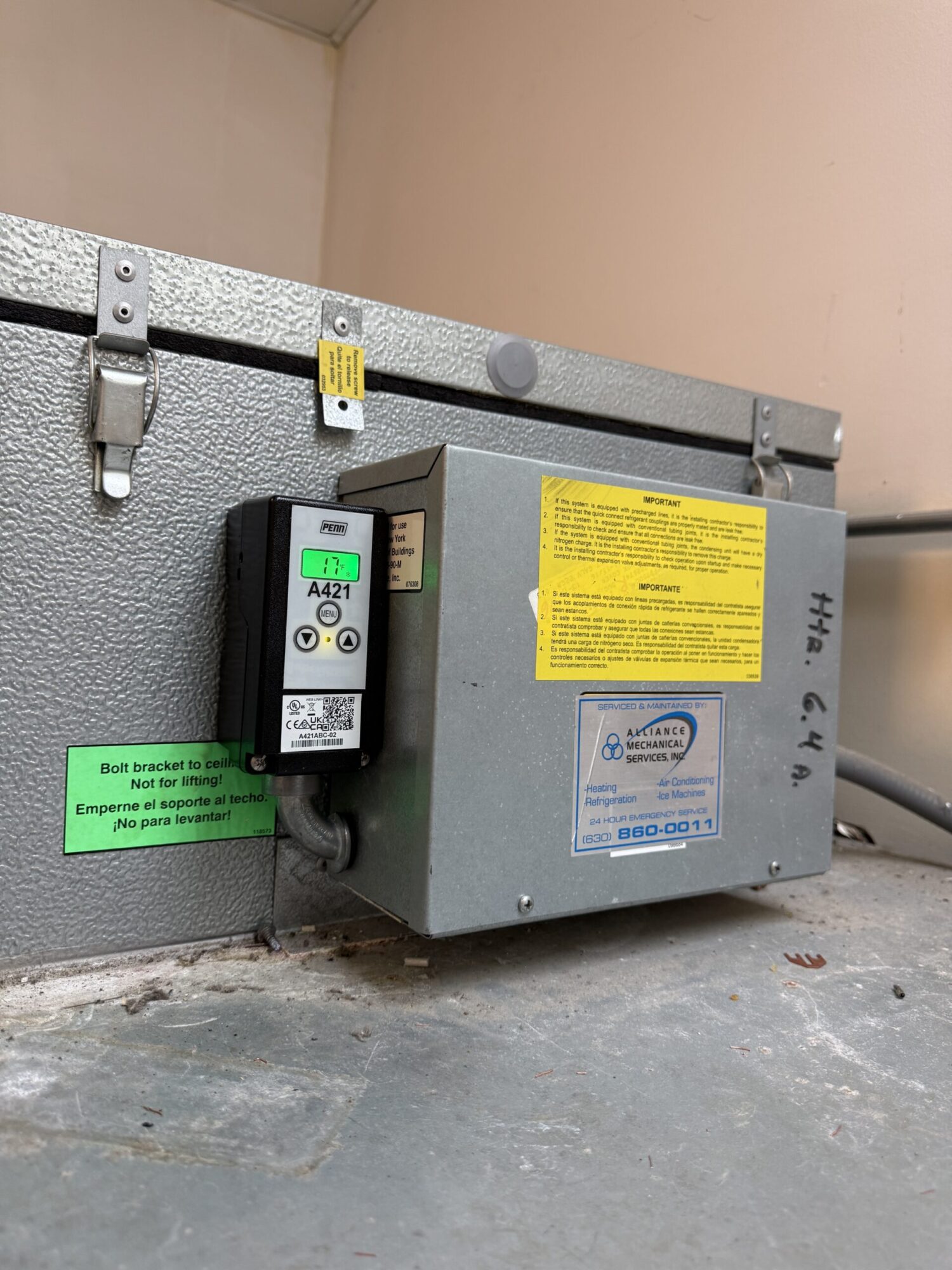A leaking commercial refrigerator can be a major issue for businesses in the food service, healthcare, and retail industries. Excess water not only creates a safety hazard but also indicates an underlying problem that could affect cooling efficiency and food safety. If you’re asking, “What should I do if my refrigerator is leaking water?” this guide will help you identify the causes, troubleshoot the issue, and implement solutions to prevent future leaks.
In this article, we’ll cover how to fix a leaking commercial refrigerator, common causes of commercial refrigerator water leaks, refrigerator leaking water troubleshooting, and DIY refrigerator leak repair tips. Additionally, we’ll explore why your fridge may be leaking water and provide best practices for preventing water leaks in commercial refrigerators.

Common Causes of Commercial Refrigerator Water Leaks
Understanding the root cause of the leak is crucial to determining the best fix. Below are some of the most common issues:
1. Commercial Refrigerator Drain Line Clog Fix
One of the most frequent causes of a leaking refrigerator is a clogged drain line. Over time, debris, food particles, and mold can obstruct the drainage system, causing water to pool inside the unit.
Solution:
- Locate the drain hole, typically found at the back of the refrigerator.
- Use a pipe cleaner, warm water, or a mild vinegar solution to remove blockages.
- Ensure the drain tube is positioned correctly to allow proper water flow.
2. Fridge Water Leakage from Bottom
Water pooling underneath the refrigerator is often a result of a misaligned or overflowing drain pan.
Solution:
- Check the drain pan for cracks or overflows.
- Clean and sanitize the pan to remove mold and bacterial buildup.
- Ensure the refrigerator is level to facilitate proper drainage.
3. Defrost Drain Blockage in Refrigerators
Commercial refrigerators use an automatic defrost cycle to prevent excessive ice buildup. If the defrost drain is blocked, melted ice may accumulate and cause water to leak.
Solution:
- Turn off the refrigerator and allow the ice to melt.
- Use a syringe with hot water to clear the drain line.
- Inspect for any damage to the defrost system components and replace them if necessary.
4. Fixing Water Leaks in Freezer Compartment
Water leaking inside the freezer compartment may be due to excess condensation or a malfunctioning defrost heater.
Solution:
- Check the evaporator coils for excessive ice buildup.
- Verify that the defrost heater is functioning correctly.
- Adjust freezer temperature settings to recommended levels.
5. Signs of Commercial Refrigerator Water Line Issues
Refrigerators with built-in water dispensers and ice makers may leak due to damaged or improperly connected water lines.
Solution:
- Inspect water supply lines for cracks, kinks, or loose fittings.
- Tighten or replace faulty water line connections.
- If the issue persists, consider professional repair services such as commercial refrigeration repair.
Refrigerator Leaking Water Troubleshooting
To effectively troubleshoot a leaking commercial refrigerator, follow these steps:
- Identify the Source of the Leak
- Check if water is pooling inside the fridge, on the floor, or around the back of the unit.
- Inspect the water supply line, defrost drain, and door seals.
- Perform Basic Maintenance
- Clean the defrost drain using warm water and baking soda.
- Reposition the drain pan if necessary.
- Remove excessive ice buildup in the freezer compartment.
- Monitor Temperature Settings
- Ensure your fridge and freezer are set at optimal temperatures (typically 37°F for the fridge and 0°F for the freezer).
- Avoid overloading the refrigerator, as improper airflow can cause condensation buildup.
DIY Refrigerator Leak Repair Tips
For minor leaks, business owners and staff can perform simple maintenance tasks to resolve the issue quickly.
- Regularly Clean the Drain Line: Prevent clogs by flushing the drain hole every few months.
- Inspect and Replace Door Gaskets: Worn-out seals allow warm air inside, leading to excess condensation.
- Check for Leveling Issues: An uneven refrigerator can cause drainage problems. Adjust the legs for proper tilt and water flow.
- Use a Leak Detector: A water sensor alarm can alert you to leaks early, preventing extensive damage.
For more preventive measures, check out our article on commercial refrigerator maintenance savings.
Prevent Water Leaks in Commercial Refrigerators
Regular maintenance is key to avoiding water leaks. Implementing a structured cleaning and inspection routine can prevent issues before they arise.
Best Practices for Preventing Leaks
- Schedule routine maintenance – Learn how often commercial refrigeration units should be serviced.
- Keep condenser coils clean – Dirty coils can cause overheating and excessive moisture buildup.
- Check and replace worn-out parts – Faulty valves, seals, and hoses should be replaced at the first sign of damage.
- Ensure proper ventilation – Overcrowding the fridge can block airflow, leading to condensation problems.
When to Call a Professional
If troubleshooting doesn’t resolve the issue, it’s best to seek professional assistance. Signs that indicate the need for expert service include:
- Persistent leaks despite cleaning and maintenance efforts.
- Electrical issues, such as flickering lights or inconsistent cooling.
- Unusual noises or vibrations coming from the unit.
For expert assistance, check out our walk-in cooler repair services or contact a commercial refrigeration specialist.
Conclusion
A leaking commercial refrigerator can disrupt business operations and lead to costly repairs if left unchecked. By understanding common causes, following refrigerator leaking water troubleshooting steps, and applying DIY refrigerator leak repair tips, business owners can address minor leaks effectively. Preventative maintenance is key to avoiding water leaks in commercial refrigerators and extending the lifespan of the unit.For additional insights on energy efficiency and commercial refrigeration, visit our article on energy management for commercial refrigeration. If leaks persist, don’t hesitate to contact a professional for commercial refrigeration maintenance.
What are the common causes of water leaks in commercial refrigerators?
Common causes include clogged drain lines, overflowing or misaligned drain pans, defrost drain blockages, excess condensation or malfunctioning defrost heaters in the freezer compartment, and issues with water supply lines connected to the ice maker or water dispenser.
How can I fix a clogged drain line in my commercial refrigerator?
To fix a clogged drain line, locate the drain hole usually at the back of the refrigerator, use a pipe cleaner, warm water, or a mild vinegar solution to clear blockages, and ensure the drain tube is correctly positioned for proper water flow.
What should I do if water is pooling underneath my refrigerator?
Check the drain pan for cracks or overflows, clean and sanitize it to remove mold and bacteria, and make sure the refrigerator is level to ensure proper drainage.
How do I troubleshoot a leaking refrigerator?
Identify the leak source by inspecting water pooling areas, water supply lines, defrost drains, and door seals, perform maintenance like cleaning the defrost drain and removing ice buildup, and monitor temperature settings to prevent condensation.
When should I call a professional for refrigerator repairs?
It’s time to call a professional if leaks persist despite maintenance efforts, if there are electrical issues like flickering lights or uneven cooling, or if there are unusual noises or vibrations indicating internal problems.



